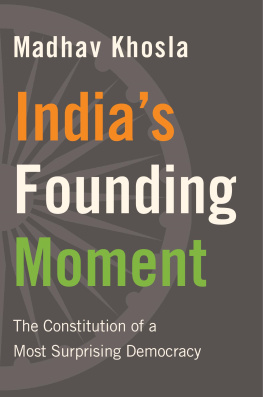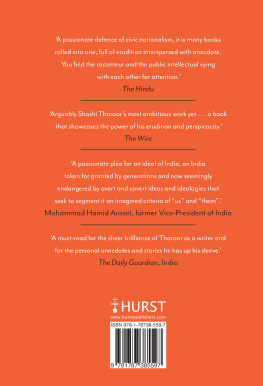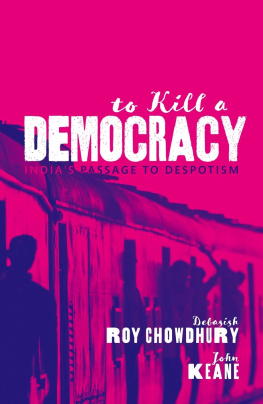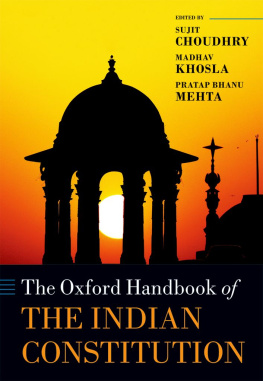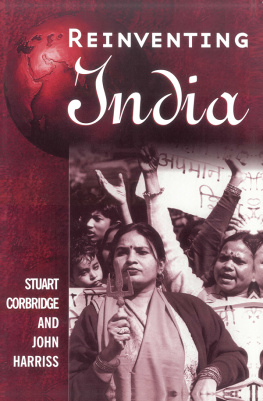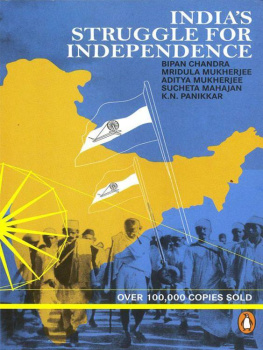An Indian Parliament or collection of Indian parliaments would produce undisguised, unqualified anarchy.
JAMES FITZJAMES STEPHEN, Foundations of the Government of India, 1883
The end of our Indian Empire is perhaps almost as much beyond calculation as the beginning of it. There is no analogy in history either for one or the other.
JOHN ROBERT SEELEY, The Expansion of England, 1883
Our major difficulties in India are due to the fact that we consider our problemseconomic, social, industrial, agricultural, communal, Indian stateswithin the framework of existing conditions. Within that framework, and retaining the privileges and special status that are part of it, they become impossible of solution.
JAWAHARLAL NEHRU, The Discovery of India, 1946
Constitutional morality is not a natural sentiment. It has to be cultivated. We must realize that our people have yet to learn it. Democracy in India is only a top-dressing on an Indian soil which is essentially undemocratic.
B. R. AMBEDKAR, Constituent Assembly Debates, 1948
A s the year 1946 came to an end, Jawaharlal Nehru introduced the Aims and Objects Resolution in the Constituent Assembly of India. It was an act of great moment, a formal declaration of the terms under which Indians would perform the rituals of self-rule. Yet Nehru, who had been a leading participant in the anticolonial struggle and was soon to be independent Indias first prime minister, spoke with a hint of regret. One of the unfortunate legacies of the past, he observed, has been that there has been no imagination in the understanding of the Indian problem. Nehru sensed that Indians were yet to grasp the import of their revolution. For him, the Indian revolution matched the American, French, and Russian in historical meaning. Much like these defining flashes in modern constitutionalism, the event was exceptional for the problem it had to solve. This study of Indias constitutional founding is an effort to take seriously Nehrus suggestion.
To appreciate why the making of modern India marked such a remarkable moment in the history of modern constitutionalismto uncover its singularityis to consider how ideas about democracy took shape in an age of empire. When Alexis de Tocqueville and John Stuart Mill proposed that democracy was unsuited to certain societies, that it mandated the presence of background conditions to enable its existence, they communicated in a language that was familiar to the nineteenth century. Mills History of British India had revealed the innate nature of Indians with astonishing detail: untold aspects of Indian social and cultural life were dissected, each attribute taken to be a mark of deviation from the Western world. In performing this task, such works had suggested that human behavior was not the consequence of politics but instead its cause. The distinction between pre-political and political passions had been turned on its head, a scenario that Thomas Hobbes would have regarded as placing the cart before the horse.
But there was more than essentialism to the nineteenth centurys turn from the radical institutional imagination of the previous century. Anxieties about the spread of democracy arose in the face of two changes. The first was the discovery of societythe encounters with modes of interaction and solidarity beyond the alienating confines of political life. The arrival of society and the economy complicated the account of sovereignty that someone like Hobbes had been able to neatly offer. At the heart of the Hobbesian project was the independence of politics. The objective was to portray a certain kind of freedom that the political sphere promised. For the nineteenth century, however, the task at hand had acquired greater complexity. To fully understand the existence of society and the economy meant interpreting the effects that these spaces had on political life. Did politics produce these spaces of energy, these fresh ways of thinking about freedom, or was politics contingent on them?
Arenas governed by social bonds or commercial exchange were not free in a technical sense. But even though the sovereign power of the state could invariably reach them, they did exert a kind of autonomous force. Their self-sufficiency called for a new conception of power. In the case of Hobbes, for example, the relationship between power and sovereignty had been relatively easy to frame. The primary threat to the domain of politics, at least in Leviathan, was the church and, to some extent, noble lords.
The changing character of power in the modern worldpuzzles about the relationship between the political and the social and economic spheres of lifecontributed to the nineteenth-century concern with universalizing self-government. This concern is a familiar topic in our intellectual life. It has been captured by a recent outpouring of scholarship on the political theory of empire. This work has engaged with a number of important ideas: the centrality of imperial ideology to wider questions in the nineteenth century; the connection between liberalism and empire; the relationship between Western categories of understanding and non-Western forms of experience; the contrast between the nineteenth century and prior centuries; the nature and meaning of universalism; and the assortment of reasons and justifications given for European expansion. This diverse set of scholarly interventions has sharpened our appreciation of major Western thinkers, given us a genealogy of imperial ways of seeing, and demystified the conceptual relationship between the imperial ideology and the idea of freedom.
There is more, however, that remains to be learned. This body of work has been striking for its historical and philosophical contributions, but it has offered us only one side of the story. We now have an appreciation of the ideological apparatus on which empires were built. But we have less sense of how those who were colonized responded to this ideology. In the Indian context the search for self-government developed gradually, but from at least 1929 onwardwhen the leading force behind this search, the Indian National Congress, issued a call for purna swaraj (complete independence)freedom from foreign rule absorbed the nationalist agenda. Indias political response to colonialism has, of course, been covered in compelling ways, but the intellectual answer has been far less explored. We know less than we might expect about how Indians met the problem of self-government.
This book addresses Indias founders responses to the problem of democracy and its preconditions. How did they approach the missing foundations on which self-government was widely thought to be predicated? Indias founders, I shall suggest, met the imperial argument on direct terms. They believed in the possibility of creating democratic citizens through democratic politics. A study of the constitutional vision brings to light the political apparatus that could effectuate this transition and respond to the challenge of democratization. The apparatus had three key elements: the explication of rules through codification; the existence of an overarching state; and representation centered on individuals. In each case there was an attempt to free Indians from prevailing types of knowledge and understanding, to place them in a realm of agency and deliberation that was appropriate to self-rule, and to alter the relationship that they shared with one another. In studying this schema, it is crucial to keep in mind the notion of the constitutive. Democracy was interpreted not as a sum of performances, but as a form of government where behavior had common meaning. The rules and structures and institutions were efforts not only to shape action but, more fundamentally, to provide meaning to practices that could be shared. Each feature of the framework served distinct and complementary roles in realizing thisin converting Indians from subjects into citizens.

